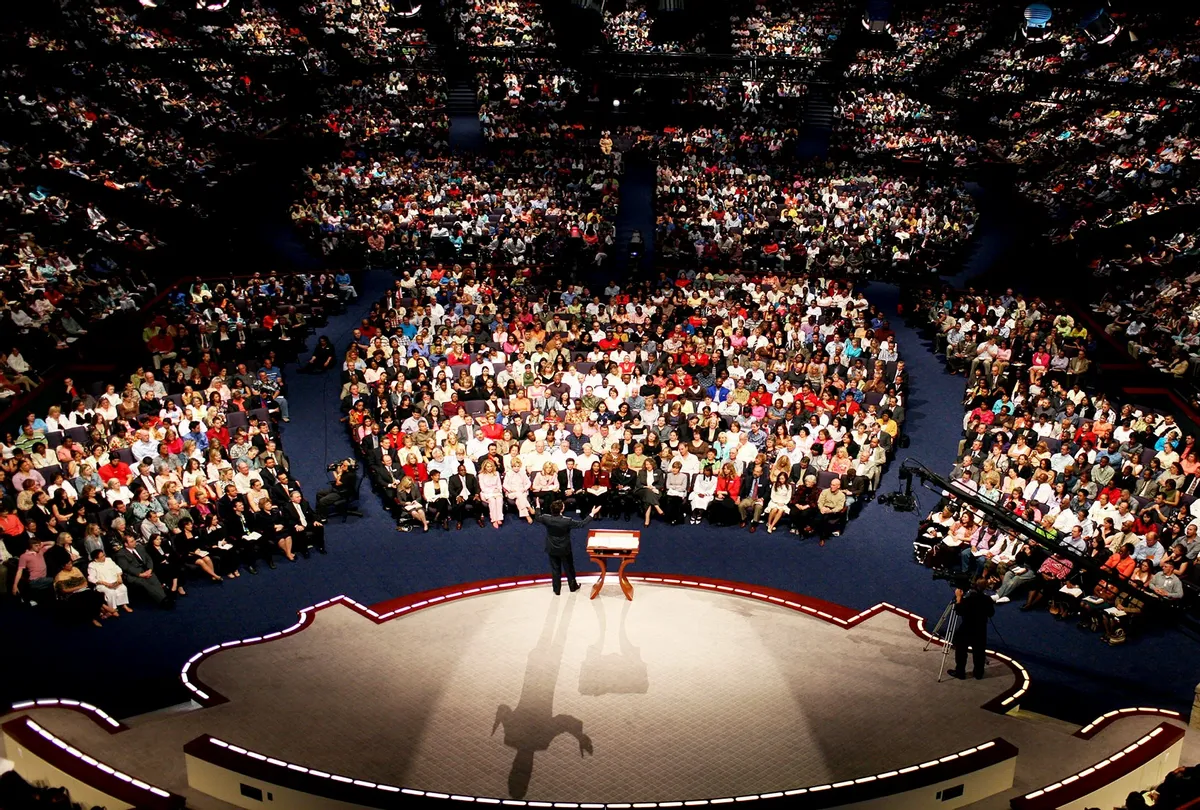This is part 2 of a series on the rise of Catholic Evangelicalism within the United States and online communities. Click Here to view the first article in the series
In today’s vibrant tapestry of religious thought, a fascinating pattern emerges with the term “Catholic Evangelical,” which encapsulates the intriguing melding of Catholic and evangelical Protestant streams. This synthesis is reshaping Catholic doctrines and altering perceptions of the papacy, casting a fresh hue over traditional beliefs.
The Theological Shift
At the heart of evangelical Christianity lies a deep emphasis on personal scripture interpretation and a direct relationship with God. This approach stands in sharp contrast to the Catholic tradition, which places the Pope at the apex of spiritual authority on Earth. The rise of evangelical influence encourages a paradigm shift among Catholics, from a collective adherence to hierarchical decrees to a more individualized spiritual journey. This shift is not merely a change; it represents a significant cultural transformation within the Catholic community, altering how authority is perceived and engaged.
Politics and Perception
The intersection of religion and politics in the United States further complicates this evolving religious landscape. Evangelical groups, often intertwined with conservative politics, frame their beliefs around a political identity that impacts their religious views. Consequently, when the Pope advocates for progressive issues like climate change, economic inequality, or immigration, it creates a rift. Catholics swayed by evangelical conservatism find themselves at odds with the papacy, viewing its authority through the prism of political ideologies rather than spiritual guidance or theological consistency.
Doctrinal Dissonance
Furthermore, core theological differences between the two traditions magnify this divide. Evangelicals frequently critique Catholic practices such as the veneration of Mary and the saints, and the doctrine of papal infallibility. These evangelical perspectives resonate with some Catholics, stirring internal debates and leading them to question the foundational pillars of their faith, including the very role and authority of the Pope.
The Role of Social Media
The rapid spread of ideas through social media plays a crucial role in this doctrinal reevaluation. As evangelical criticisms of the Pope circulate online, they reach a wide audience quickly, compelling Catholics to reassess their traditional beliefs influenced by the potent mix of accessibility and the persuasive power of alternative viewpoints.
Ecumenical Efforts and Their Consequences
While ecumenical movements aimed at bridging doctrinal gaps between denominations are generally viewed positively, they can sometimes lead to confusion among the faithful. Increased interaction with evangelical thought through these initiatives may encourage Catholics to embrace more pluralistic views, potentially diluting the perceived necessity for papal guidance. This blending of beliefs risks diminishing the authority of traditional leadership structures, including that of the Pope.
Conclusion
The term “Catholic Evangelical” highlights a significant trend in the interaction between different Christian denominations, showing how these relationships reshape the religious landscape. This new religious synthesis offers both challenges and opportunities, providing a window into the dynamic evolution of religious thought and leadership in today’s society. As we continue to navigate these changes, the impact on communal and individual faith practices will undoubtedly be profound, heralding a new era in the story of religious expression.


Leave a Reply